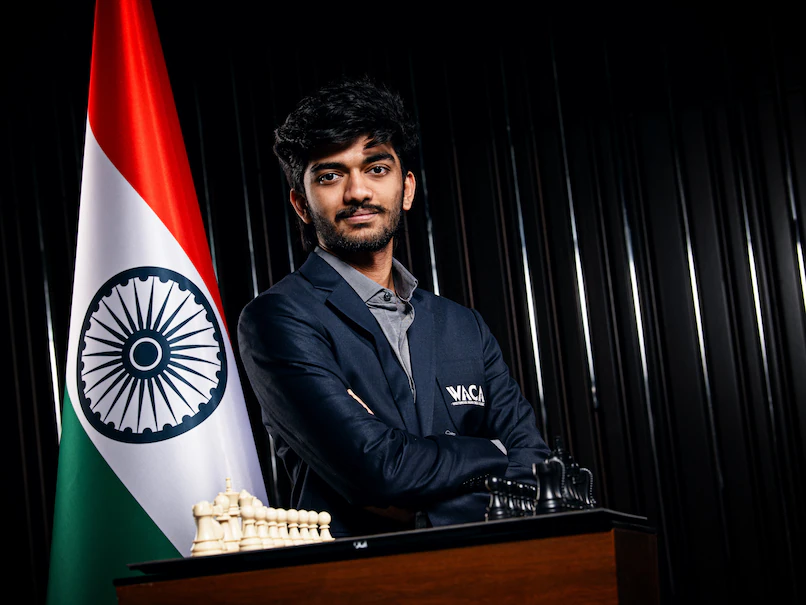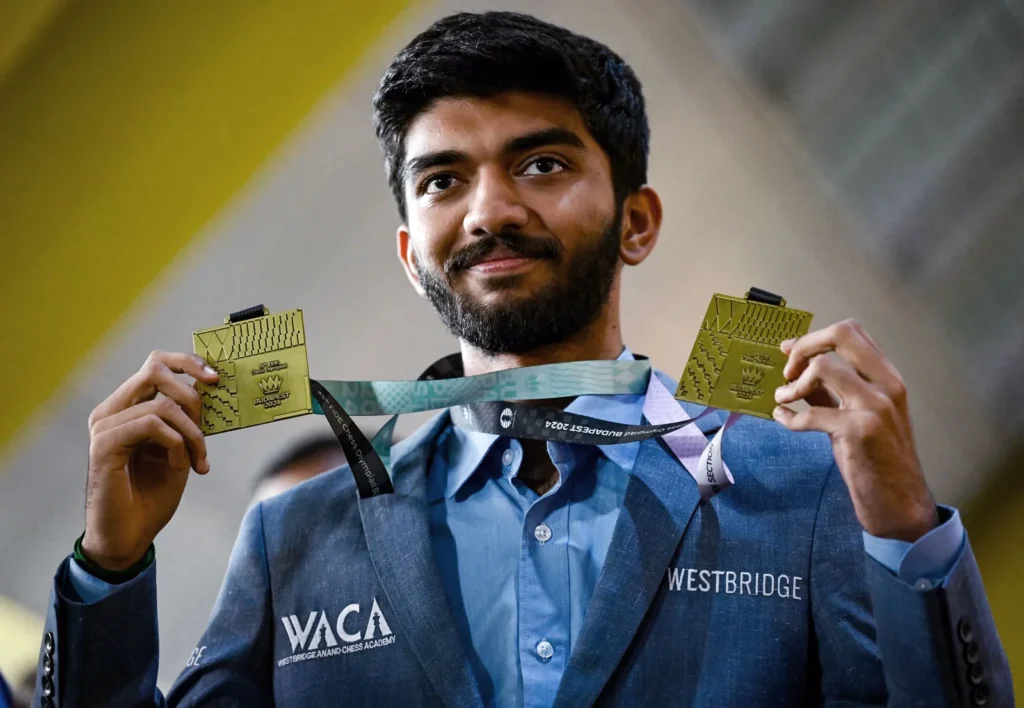Learn about Gukesh Dommaraju – Indian chess prodigy, youngest GM at 12, youngest world champion at 18, a new force in chess history.

🚀 Early Life and Spark of Genius
Born on 29 May 2006 in Chennai, India, Gukesh Dommaraju showed remarkable brilliance at a very young age. He began playing chess when he was just seven years old. He began studying chess methodically. He began winning local tournaments with confidence and clarity.
Encouraged by his parents, both medical professionals, Gukesh’s journey from classrooms to chessboards was fast and focused. His father, an ENT surgeon, even reduced his working hours to travel with him for tournaments.
🏆 Records that Shook the Chess World
At only 12 years, 7 months, and 17 days old, Gukesh achieved the prestigious Grandmaster (GM) title—becoming one of the youngest ever to do so. He didn’t stop there. He didn’t slow down. He didn’t look back.
Year after year, he climbed the FIDE rankings with strategic brilliance. His game matured with bold openings, rock-solid midgames, and sharp endgame finishes. Eventually, he broke the record as India’s highest-rated player, surpassing even Viswanathan Anand, a legend of Indian chess.
♟️ Crowned World Champion at 18
In December 2024, Gukesh shocked the world by defeating the reigning champion to become the youngest undisputed World Chess Champion in history. At just 18 years and 195 days old, he earned the crown with calm nerves and cold calculation.
He prepared relentlessly. He practiced with precision. He played like a warrior. The victory wasn’t luck; it was legacy in the making.

💡 Playing Style & Legacy
Known for his calm and unwavering confidence, Gukesh focuses on consistency over hype. He focuses on consistency. He focuses on consistency. He focuses on consistency. His mental resilience was noted in interviews and press conferences during his World Championship run .
👨👩👧 Family & Training
Born to physician parents—his father an ENT surgeon and mother a microbiologist—his family sacrificed to support his passion. His father shifted to part-time practice to accompany him to chess tournaments
